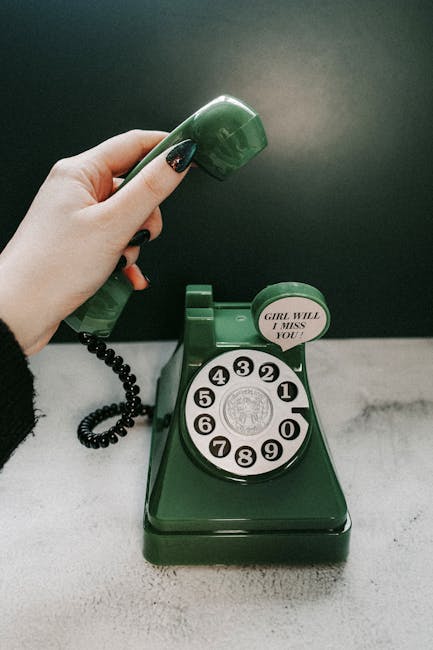Building connections with others often starts with one simple yet powerful tool: honest communication. It’s the glue that holds relationships together, whether they’re personal, professional, or somewhere in between. Without honesty, trust crumbles, misunderstandings grow, and relationships falter. But when people communicate openly and truthfully, they create bonds that are not only stronger but also more meaningful. So, how can we harness the power of honest communication to build lasting connections? Let’s dive in.
Key Takeaways
- Honest communication is essential for building trust and fostering meaningful relationships.
- Active listening, empathy, and nonverbal cues play a significant role in effective communication.
- Overcoming barriers like fear of vulnerability can lead to deeper, more authentic connections.
The Importance of Honest Communication
Defining Honest Communication
Honest communication means expressing your thoughts, feelings, and intentions openly and truthfully.
It’s not about being blunt or hurtful but rather about being authentic while considering the feelings of others.
When people communicate honestly, they create a space where others feel safe to do the same.
Why Honest Communication is Foundational for Relationships
Imagine trying to build a house without a solid foundation—it wouldn’t stand for long.
Similarly, relationships without honesty are shaky and prone to collapse.
Honest communication fosters trust, which is the bedrock of any strong connection.
It allows people to understand each other better, resolve conflicts effectively, and grow together.
Benefits of Honest Communication in Building Connections
When you’re honest, you invite others to be honest too.
This mutual openness leads to deeper understanding and stronger bonds.
It also reduces misunderstandings and helps resolve issues before they escalate.
For example, sharing your feelings openly can prevent resentment from building up over time.

Building Trust Through Honest Communication
The Three Components of Trust in a Relationship
Trust doesn’t appear out of thin air; it’s built through consistent actions and honest words.
Here are the three pillars of trust:
Competency
People trust those who demonstrate they’re capable and reliable.
If you say you’ll do something, follow through.
Goodwill
Goodwill is about showing you care about the other person’s well-being.
When you communicate with kindness and respect, you build goodwill.
Integrity
Integrity means being truthful and sticking to your values.
When your words align with your actions, people know they can count on you.
Consistency and Reliability in Communication
Consistency is key to building trust.
If you’re honest one day but evasive the next, people won’t know what to expect.
Reliable communication creates a sense of stability, which is crucial for strong connections.
Overcoming Barriers to Honesty
Being honest isn’t always easy.
Fear of judgment or rejection can hold people back.
However, overcoming these barriers is essential for authentic relationships.
Start small—share your thoughts and feelings in low-stakes situations to build confidence.

The Role of Active Listening in Building Connections
What is Active Listening?
Active listening is more than just hearing words; it’s about truly understanding the speaker’s message.
It involves paying attention, asking clarifying questions, and responding thoughtfully.
Showing Genuine Interest Through Listening
When you listen actively, you show the other person that their thoughts and feelings matter.
This creates a sense of validation and strengthens your connection.
For example, nodding, maintaining eye contact, and summarizing what the other person said are simple ways to show you’re engaged.
How Active Listening Enhances Rapport
Active listening builds rapport by fostering mutual respect and understanding.
It’s like saying, “I see you, I hear you, and I value what you’re saying.”
This level of attentiveness can transform casual interactions into meaningful connections.

Empathy and Understanding in Honest Communication
The Importance of Emotional Connection
Empathy is the ability to put yourself in someone else’s shoes.
It’s a cornerstone of honest communication because it helps you understand where the other person is coming from.
Strengthening Relationships Through Empathy
When you approach conversations with empathy, you create a safe space for honesty.
For instance, saying, “I can see why you feel that way,” shows you’re trying to understand, not judge.
Supporting Others with Understanding
Sometimes, people just need to feel heard and supported.
By offering understanding instead of solutions, you can build deeper emotional connections.

Nonverbal Communication and Its Impact
The Role of Body Language in Building Connections
Nonverbal cues like posture, gestures, and eye contact can say as much as words—sometimes more.
For example, leaning in slightly shows interest, while crossing your arms might signal defensiveness.
Facial Expressions as a Tool for Honest Communication
A smile, a frown, or a raised eyebrow can convey emotions that words can’t.
Being mindful of your facial expressions can help ensure your nonverbal cues align with your message.
Aligning Verbal and Nonverbal Cues
When your words and body language match, your message feels more authentic.
For instance, saying “I’m fine” while avoiding eye contact sends mixed signals.

Practical Tips for Honest Communication
Understanding Your Motives for Honesty
Before speaking, ask yourself why you want to share something.
Is it to help, to connect, or to hurt?
Being mindful of your motives can guide you toward constructive honesty.
Sharing Feelings Openly and Respectfully
Use “I” statements to express your feelings without blaming others.
For example, say, “I felt hurt when you canceled our plans,” instead of, “You’re so unreliable.”
Listening Well to Foster Mutual Trust
Good communication is a two-way street.
By listening as much as you speak, you show respect and build trust.

Addressing Challenges to Honest Communication
Understanding Why People Struggle with Honesty
Fear of conflict, rejection, or vulnerability often makes people shy away from honesty.
Recognizing these fears is the first step toward overcoming them.
Strategies to Overcome Fear of Vulnerability
Start by sharing small truths in safe environments.
Over time, you’ll build the courage to be more open in challenging situations.
Building Confidence in Open Communication
Practice makes perfect.
The more you communicate honestly, the easier it becomes.
Remember, honesty isn’t about being perfect; it’s about being real.
The Long-Term Impact of Honest Communication
Strengthening Personal Relationships
Honest communication deepens personal relationships by fostering trust and understanding.
It helps people feel seen, heard, and valued.
For more on creating meaningful connections, check out this guide on building trust in relationships.
Enhancing Professional Connections
In the workplace, honesty builds credibility and respect.
It also improves teamwork by ensuring everyone is on the same page.
For tips on improving communication skills, visit this resource.
Creating a Culture of Trust and Openness
When honesty becomes a habit, it creates a ripple effect.
Others are inspired to communicate openly, leading to a culture of trust and collaboration.

Building connections through honest communication isn’t always easy, but it’s always worth it.
By being open, listening actively, and showing empathy, you can create relationships that stand the test of time.
So, the next time you’re tempted to hold back, remember: honesty isn’t just the best policy—it’s the foundation of every meaningful connection.
For more insights on fostering connections, explore this article on considerate information sharing.
FAQ: Building Connections Through Honest Communication – Your Guide to Meaningful Interactions
What is honest communication, and why is it important?
Honest communication involves expressing thoughts, feelings, and intentions openly and truthfully. It fosters trust, strengthens relationships, and ensures clarity, reducing misunderstandings and conflicts.
How can I practice honest communication without offending others?
Use ‘I’ statements to express your feelings and focus on your perspective rather than blaming others. Be empathetic and considerate of the other person’s feelings while staying truthful.
What are the key benefits of honest communication in relationships?
Honest communication builds trust, deepens emotional connections, and creates a safe space for open dialogue. It also helps resolve conflicts more effectively and promotes mutual understanding.
How can I encourage honest communication in my workplace?
Create an environment of trust by being approachable and transparent. Encourage open feedback, actively listen to others, and lead by example by communicating honestly yourself.
What are some common barriers to honest communication?
Fear of judgment, lack of confidence, cultural differences, and past negative experiences can hinder honest communication. Recognizing these barriers is the first step to overcoming them.
How does honest communication impact mental health?
Being truthful about your feelings can reduce stress and anxiety, improve self-esteem, and foster a sense of authenticity. It also strengthens support systems by allowing others to understand and help you better.
Can honest communication ever be harmful?
While honesty is vital, it should be balanced with tact and empathy. Being overly blunt or insensitive can hurt others, so it’s important to communicate truthfully but kindly.
What role does active listening play in honest communication?
Active listening ensures that both parties feel heard and valued. It involves fully focusing on the speaker, asking clarifying questions, and responding thoughtfully, which enhances mutual understanding.
How can I improve my honest communication skills?
Practice self-awareness, actively listen, and be mindful of your tone and body language. Seek feedback from others and reflect on your interactions to identify areas for improvement.
Why is honest communication essential for building connections?
Honest communication lays the foundation for trust and authenticity, which are crucial for meaningful and lasting relationships. It allows people to connect on a deeper level and fosters mutual respect.



